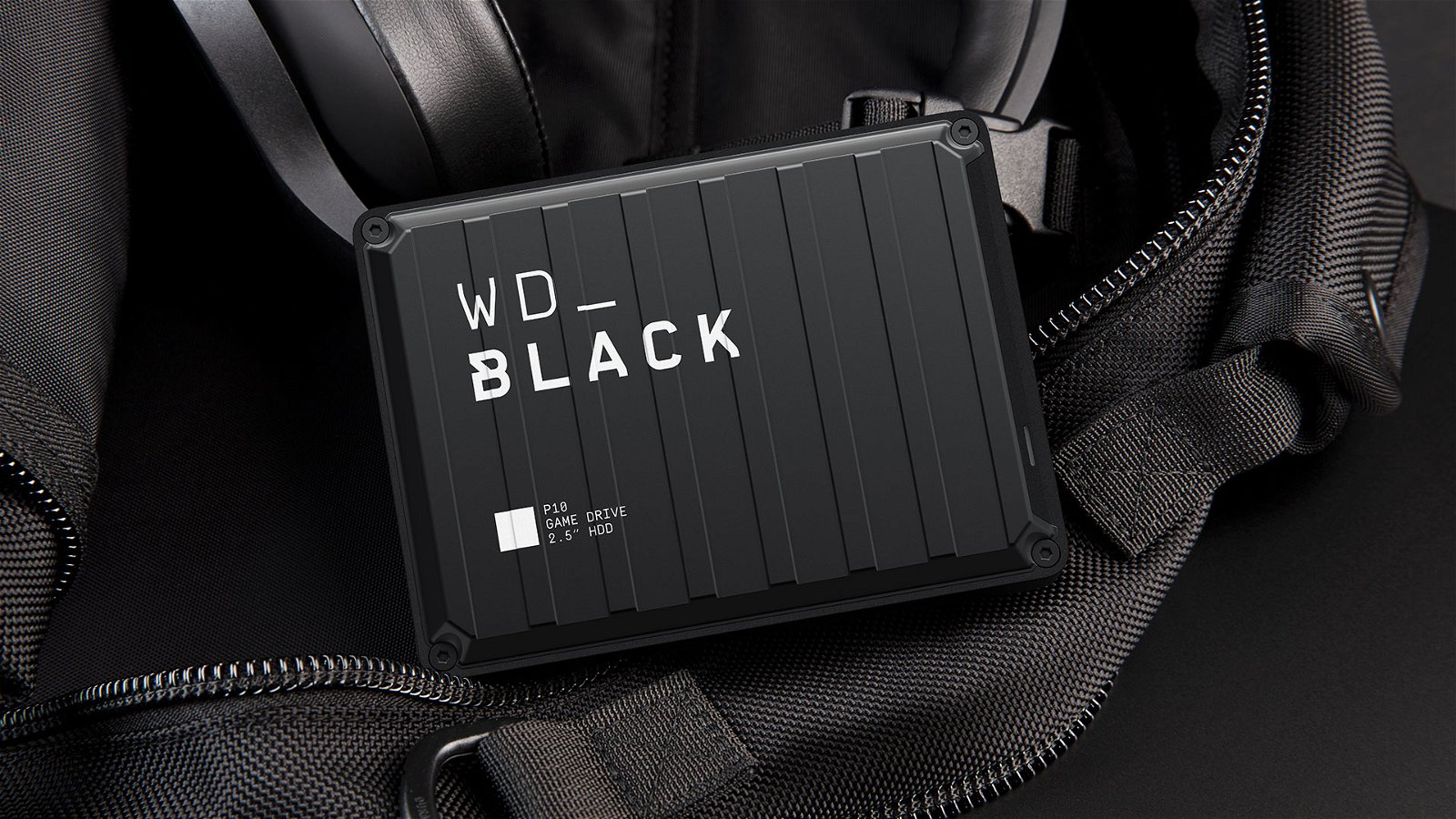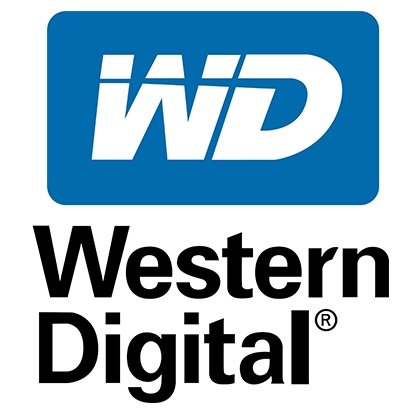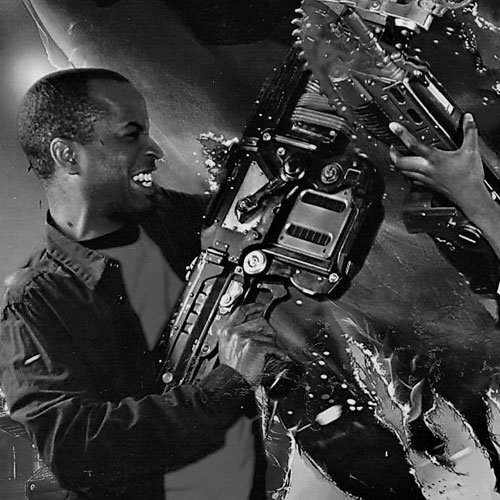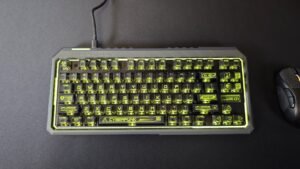If there’s one thing that the dawn of the 9th Generation of Game Consoles has taught us, it’s that more than ever, storage space comes at a premium, especially when your next-generation console of choice comes with a built-in, non-swappable high-speed Solid-State Drive that is no larger than one terabyte in size. Myself having splurged on the $300 CAD (!) Seagate 1TB Expansion Drive to bring my Xbox Series X’s SSD storage capacity up to a somewhat more manageable 2TB (I paid for half of it trades and regret nothing, okay?), my pocketbook knows the struggle all too well.
Between the games I am regularly playing on the weekly, games that I am reviewing, games that I am taking for a spin on Xbox Game Pass, and a rotating list of favourites on my backlog, both my Series X’s internal drive and the Seagate SSD are perpetually 70-80% full, with just under 400GB of leftover space reserved for emergencies (like the occasional impulse purchases that I want to play right away or temporary downloads related to the fulfillment of weekly and monthly Xbox Quests).
The only reason why I have even that much space however is due to the unsung hero in my gaming setup, a third, portable, mechanical drive from Seagate that I’ve been using to handle bulk game storage since the tail-end of the Xbox One X’s short reign as Microsoft’s most powerful console. That 5TB drive serves as the repository for the lion’s share of my back-compatible Xbox, Xbox 360 and Xbox One games that take little advantage of the Xbox Series X’s SSD, not to mention general overflow.
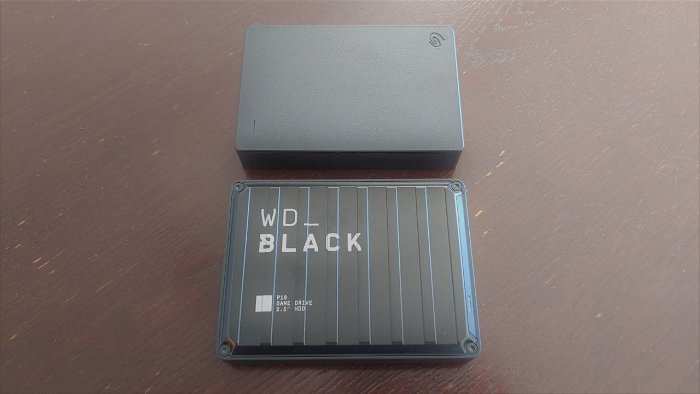
This allows me to dedicate my console’s limited SSD space to newer and/or more demanding games that benefit from those faster drives the most, but it’s also possible to play just about any Xbox game directly off the mechanical drive, with slower load times being the only real drawback. Having enough storage to keep my entire digital library of Xbox games at my fingertips without having to delete or redownload them is a huge time and bandwidth saver, as I’m sure many gamers will agree with me, regardless of platform. Even if it’s only used occasionally as a backup, a cheap and reliable external hard drive is an indispensable tool in just about any gamer’s arsenal.
Well, as you can probably imagine, at 7 months into the lifecycle of the PlayStation 5 and Xbox Series consoles, next-gen game file sizes are ballooning and that Seagate drive of mine has been getting pretty full, which makes me think that there are several power users out there like me considering the eventual purchase of a second drive, ideally one that doesn’t look identical to the first. Enter the Western Digital 5TB WD Black P10 Game Drive, which immediately makes that distinction easy.
“The P10’s casing design exudes a curiously rugged and mysterious style.”
It can’t be denied that the P10’s casing design exudes a curiously rugged and mysterious style. Built as if to resemble an inconspicuous shipping container on a clandestine cargo ship carrying illicit black-market goods, yet audacious enough to have the actual name of the product, its function and capacity emblazoned across its metallic cooling cover in a Modern Warfare-inspired “top-secret dossier” typeface, the product certainly stands out, especially when compared to your average-looking portable hard drive. It makes a rather striking companion sitting next to a matching black console, like the PS4, Xbox One X or Xbox Series X (and there is even a nearly identical, Xbox One vanity-plate branded version that can be had for a little extra). Like all portable hard drives, the P10 draws all the power it requires via an all-too-short USB 3.2 cable connection to the console, with no need for a bulky adapter.
Surprisingly however, for all its physical pomp and circumstance on the exterior, the WD_Black provides absolutely no frills when plugged into your Windows PC. It just shows up as a standard “WD_Black” hard drive in the directory, with no specialized software or even a fancy WD icon. A bit of a letdown perhaps, but it’s also a reassuring sign that WD knows exactly what this drive is intended for and thus wasted no time gussying it up, considering that the most probable fate for this device is to be immediately reformatted to work with a gaming console anyway.
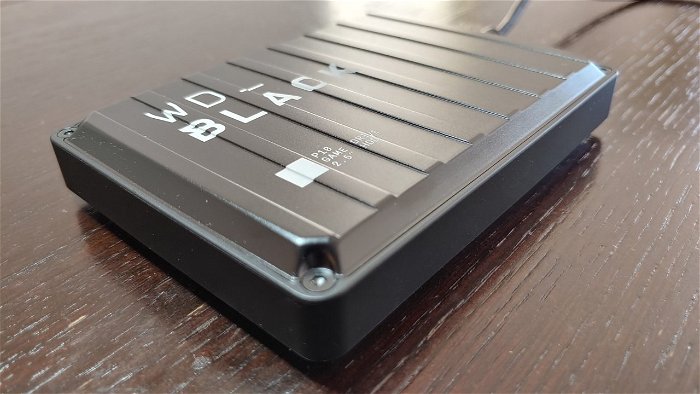
Which brings us to the crux of the matter; is the P10 fast enough to be worthy of the name “Game Drive”, or is it just a run-of-the-mill portable hard drive with a fancy title to accompany its industrial bad-boy look? I concluded that the best way to find out was to put the P10 up against my run-of-the-mill Seagate, testing the performance of both drives when used with a laptop PC as well as my Xbox Series X. The P10 boasts transfer speeds of 130MB per second as opposed to the Seagate’s 120MB per second, so I figured I’d at least see some marginal improvements in the P10’s favor.
“Game boot times were pretty close, with the Seagate and WD Black P10 Game Drive coming in neck-and-neck at 23 seconds.”
I used my Steam install of Valve’s Portal 2 as my PC test game, as it was one of the few PC games I own that my non-gaming laptop can actually run. When operating off my laptop’s built-in SSD, Portal 2 took about 24 seconds to boot from my Steam game library to the startup screen, 9 seconds to load a previous game save from the start menu, and 18 seconds to begin a new game from scratch. So I was rather stunned when both mechanical drives turned in faster numbers. Game boot times were pretty close, with the Seagate and WD Black P10 Game Drive coming in neck-and-neck at 23 seconds, and they both trounced my laptop in loading game saves as well, averaging 9 seconds to load a previous save and 12 seconds to start a new game. Clearly, not all SSDs are created equal; my laptop has some explaining to do, but that’s a whole other topic.
Transfer times proved interesting. Using the Steam app, it took 3:02:49 minutes to move Portal 2’s 11.82GB Steam installation from my laptop’s SSD hard drive to the Seagate, and only 1:48.43 minutes to move it back. Meanwhile, it took only 2:34.02 minutes to move the same install to the P10, but it took 2:07.28 minutes to move it back. So, a bit of a wash then. The real shocker was when I attempted to move a large, 2.82GB video file between the laptop and the two drives using Windows Explorer. It only took 21.66 seconds to transfer the file to the Seagate, and 20.62 seconds to move it back, while the P10 took a significantly slower 1:25:32 minutes and 1:30.51 minutes to do the same.
Moving on to Xbox Series X, I selected Yakuza 6: The Song of Life as my console test game, which is a 37.76GB file. While the numbers were more consistent than they were on PC, the P10 results continued to underwhelm. Starting up Yakuza 6 from the Xbox Guide took 13.57 seconds on the console’s SSD. It took a mere 5.54 seconds to load a previous game save, and just about 12 seconds to start a game from the beginning. Predictably, the Seagate mechanical drive turned in slower times of 17.35, 19.92 and 17.95 respectively, while the P10 clocked in at 17.11, 19.91 and a head-scratching 21.62. Hardly a victory by any measure.
Transfer times on console were also confounding regarding the P10. It took 5:32.47 minutes to move Yakuza 6 from the Series X’s SSD to the Seagate, and a noticeably faster 4:32.05 minutes to move it back, while the WDP10 took 5:23.98 and 5:26:72 to do the same.
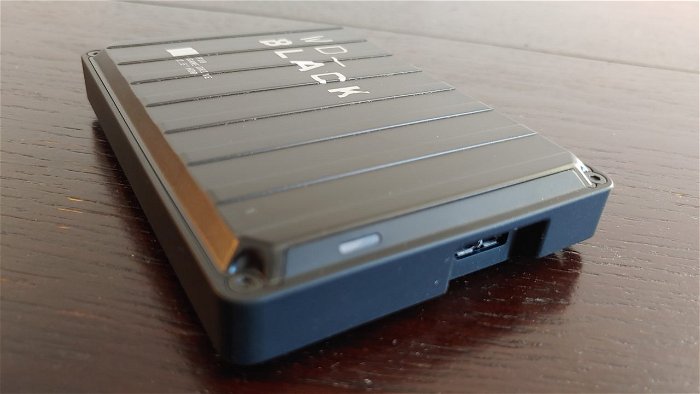
So in the final analysis, the Western Digital P10 Game Drive is a bit of a charlatan in name when compared to your standard, off the shelf portable hard drive. Indeed, it outperformed the Seagate in the majority of my tests as its 10MB/s speedier claims would suggest, but the differences were hardly significant enough to suggest in the slightest that the P10 is a superior mechanical drive for gaming. Even worse, the overall transfer speeds that resulted from simply copying large files back and forth between the P10 and a computer were shockingly slower in comparison to the Seagate, which suggests that the P10 might be a poor choice for PC gamers that also need a portable hard drive for heavy-duty Windows productivity functions (if you want to move fast, anyway).
Given that it took almost a full minute longer to copy Yakuza 6 back to my Xbox Series X’s SSD also makes me think it might not be the best portable hard drive to go with if you are a user who intends to shuttle games between the P10 and your console frequently. If you’re mainly using it for bulk storage and the occasional swapping of content, you should be okay, but you could also probably save a bit of money and buy a cheaper, less fancy looking drive from WD, Seagate or another competitor, or even a superior drive at the same price and still accomplish the same end.
